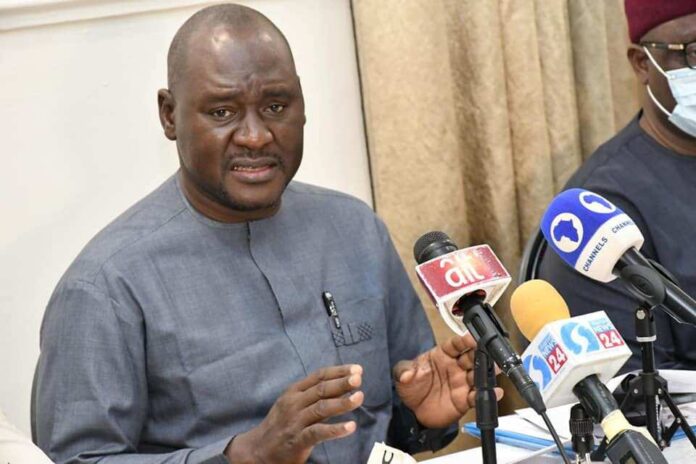By Abdullahi Alhassan, Kaduna
The Civil Society legislative and advocacy Centre , CISLAC has lamented how Corruption have continued to undermine Developmental sectors in the country called for urgent attention.
In a Press statement signed by made available to newsmen by the Executive Director Mallam Auwal Ibrahim Musa Rafsanjani, said “Corruption continues to plague every sector of Nigeria’s socio-economic and political landscape, serving as the root cause of systemic failures and deepening poverty, insecurity, and underdevelopment.
He explained that Corruption has severely undermined Nigeria’s fight against insurgency and insecurity, diverting critical funds meant to bolster national defense into private hands.
He therefore offers Solutions “Strengthen Institutional Frameworks and Autonomy To ensure an effective fight against corruption, the judiciary and key anti-corruption agencies (EFCC, ICPC, and CCB) must be reformed and insulated from political interference.
“These institutions should have full operational autonomy, and their leadership should be provided with security of tenure to prevent undue influence.Furthermore, local government autonomy should be guaranteed by empowering INEC to conduct local elections, ensuring greater accountability at the grassroots level.
“Comprehensive Electoral Reforms and Monitoring There is a need to enforce transparency in political campaign financing, particularly by instituting clear requirements for the declaration of campaign funds. Strong penalties for vote-buying and electoral malpractices, especially during party primaries, must be implemented. Political parties should also be compelled to uphold internal democracy, reducing the influence of corrupt individuals in party leadership.
“Revitalize the Education Sector and Combat ‘Sextortion’
To combat Nigeria’s educational crisis, the government must increase investment in teacher training, school infrastructure, and student welfare. Addressing the 20 million out-of-school children (UNICEF, 2023) is imperative.
Adding that “Reforming the university admission process, raising JAMB cut-off marks, and addressing the rampant issue of “sextortion” in academic institutions must be prioritized. Independent bodies should be empowered to investigate and take swift action against perpetrators of sexual exploitation in schools.
He maintained that”Boost Healthcare Funding and Address the IDP Crisis The Nigerian government should allocate at least 15% of the national budget to healthcare (in line with the Abuja Declaration), improving the doctor-to-patient ratio (currently at 1:6,000, far above the WHO standard of 1:600).
“Healthcare infrastructure must be developed to cater to the needs of vulnerable populations, particularly internally displaced persons (IDPs). As of 2024, Nigeria has over 4.3 million IDPs, who continue to suffer from inadequate access to food, healthcare, and sanitation.”A transparent mechanism must be established for the disbursement of humanitarian aid to IDPs to ensure that the resources reach those in need.
“Enforce Transparency in Public Procurement and Constituency Projects
The Public Procurement Act must be strictly enforced to ensure transparency and fairness in government contracting.
The statement advices “Legislative frameworks should be put in place to regulate constituency projects, ensuring that funds allocated are used for their intended purposes and benefit local communities. Procurement processes should be transparent, competitive, and free from political interference, with a clear audit trail of all public funds spent.
CISLAC urges Combat Economic and Financial Crime in the Banking Sector The banking sector must be held accountable for its role in money laundering and financing terrorism.
He opined that “Financial institutions should be compelled to fully implement Know Your Customer (KYC) protocols and penalized for failing to do so. The use of digital systems, including enhanced monitoring of BVN activities, should be prioritized to detect fraudulent financial transactions and prevent the misuse of financial services by corrupt individuals and criminal organizations.
“Promote Civic Engagement, Protect Public Spaces, and Strengthen Anti-Corruption Legislation The Nigerian government should roll back laws that inhibit free speech, ensuring the protection of journalists, activists, and citizens who expose corruption. Public awareness campaigns should be launched to educate the population on their rights and corruption reporting mechanisms.
Furthermore, anti-corruption legislation should be strengthened, addressing gaps in asset declarations, public procurement transparency, and anti-money laundering frameworks.
“These recommendations are essential for creating a transparent, accountable, and fair system in Nigeria, which can lay the foundation for sustainable economic growth and social equity. Implementation of these reforms will require concerted efforts from both the government and civil society to ensure that the benefits of Nigeria’s wealth are equitably shared.




